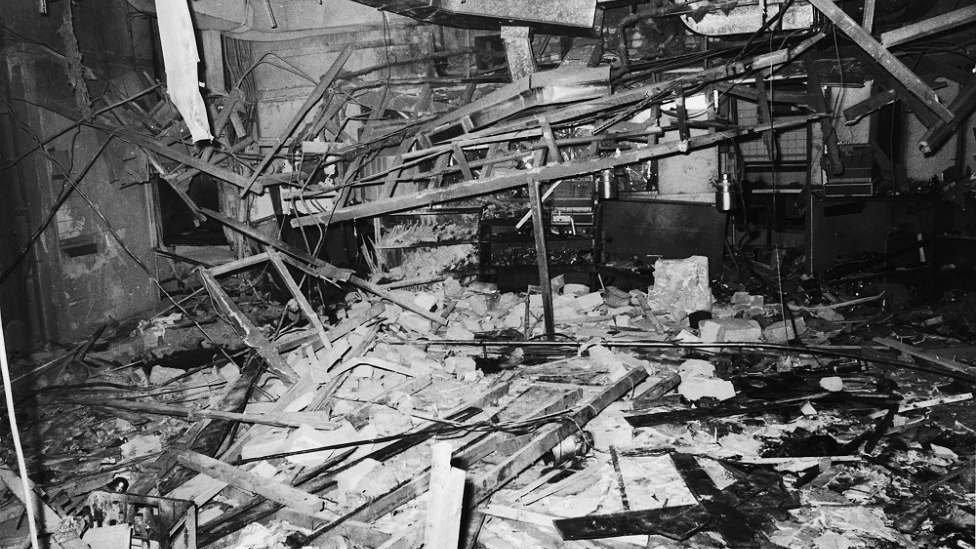Birmingham pub bombings: 'Men responsible' named by IRA bomber
- Published
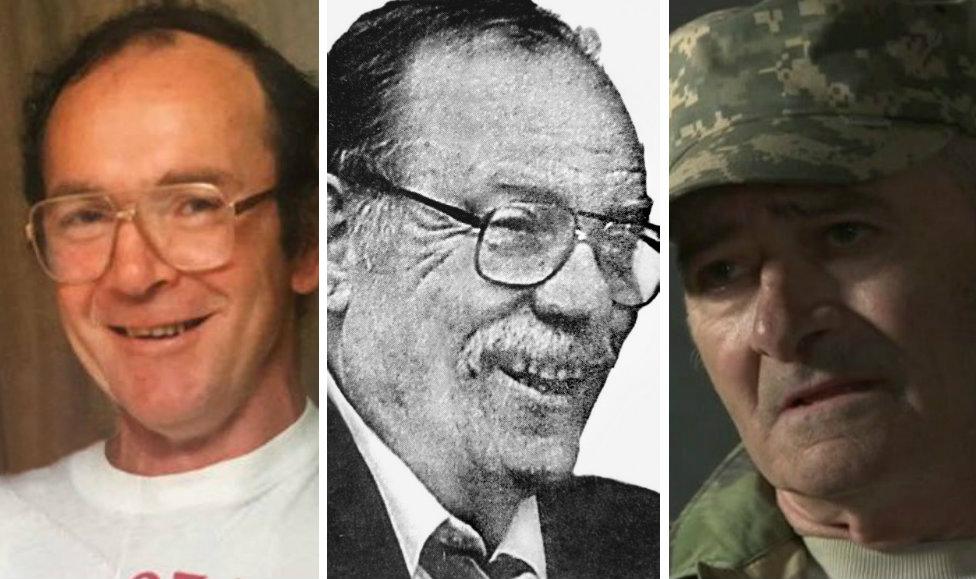
James Gavin, Mick Murray and Michael Hayes were three of four men named by Witness O at the inquests
A convicted IRA bomber has named four men he says were responsible for the 1974 Birmingham pub bombings.
At inquests into the deaths of the 21 victims, "Witness O" named the men responsible as Seamus McLoughlin, Mick Murray, Michael Hayes and James Gavin.
He said he had been given permission to reveal the names by the current head of the IRA in Dublin.
The witness was part of an active service unit in the city, but was in prison at the time of the bombings.
Speaking via video link he accepted the bombings were an "atrocity".
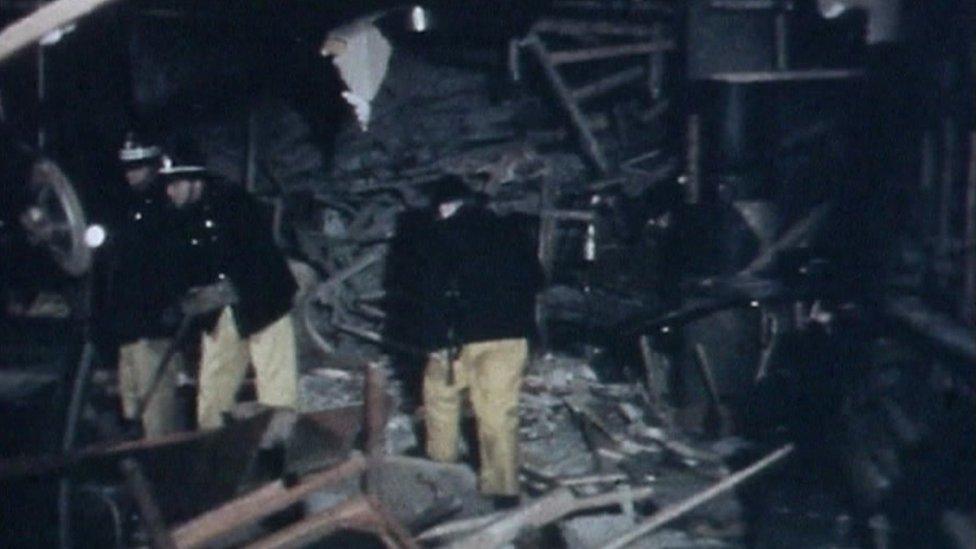
Bombs detonated in the Mulberry Bush and the Tavern in the Town
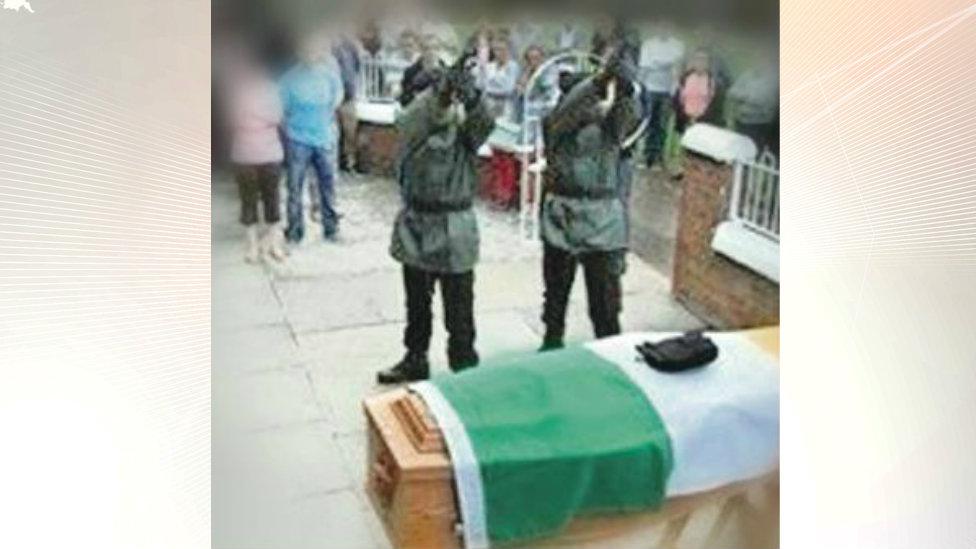
Seamus McLoughlin, who was also named by Witness O at the inquests, has since died
Bombs exploded at the Mulberry Bush in the base of the city's Rotunda and the Tavern in the Town in nearby New Street.
Witness O said he believed police had been given a warning that would have given adequate time to evacuate the busy pubs.
He named Seamus McLoughlin as the officer commanding the Birmingham IRA at the time and said he was the person responsible for selecting the targets.
He said Mick Murray was "one of the bombers" and claimed he recalled how Murray told him there would be "no harm" if similar bombings had been repeated, because of the "chaos" caused.
When pressed by a lawyer for the bereaved families, he said Michael Hayes and James Gavin were also part of the team.
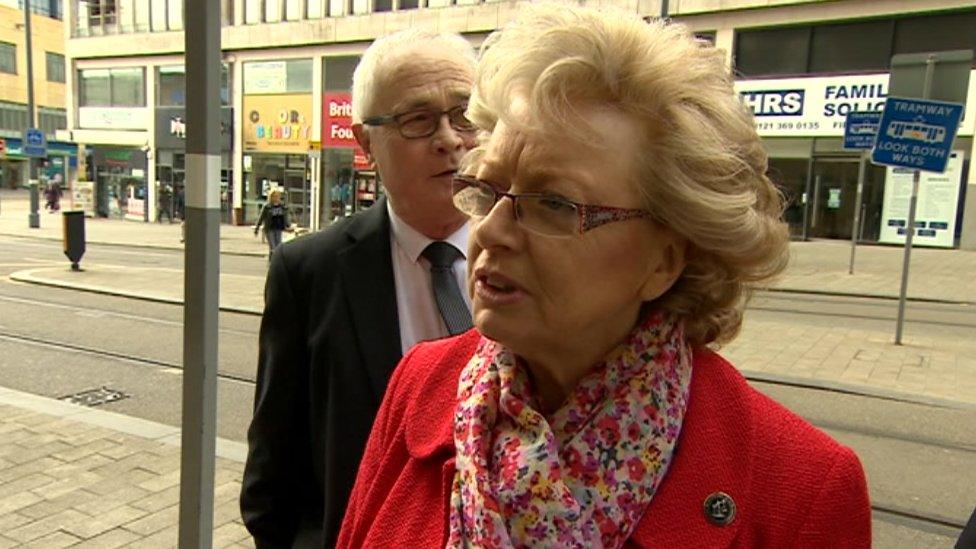
Julie Hambleton's sister Maxine was killed in the Tavern in the Town
All four men have been previously named in connection with the bombings, but not in a formal setting.
In July 2017, Michael Hayes gave an interview to BBC News Northern Ireland in which he said he was part of the group responsible for the bombings. He said he was sorry innocent people had been killed.
He refused to say who planted the bombs, but said he was speaking out to give "the point of view of a participant".
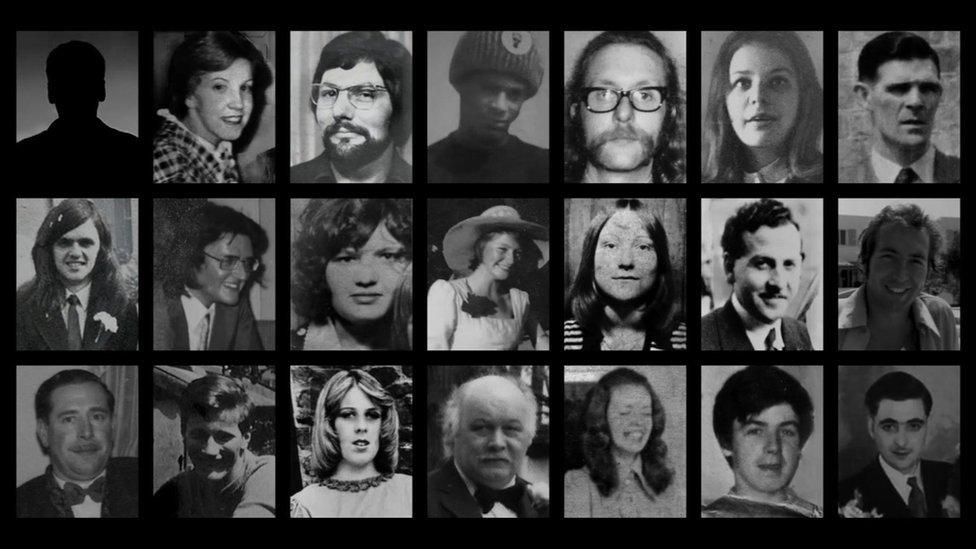
The Birmingham pub bombings killed these 21 people in November 1974
At the inquests on Friday Mr Leslie Thomas QC asked Witness O whether a previously named suspect, Michael Patrick Reilly, had been involved.
The witness said: "No, I don't remember him at all. Reilly? I would remember that."
Mr Reilly has always denied any involvement in the bombings.
The inquests previously heard the bombings were "an IRA operation that went badly wrong".
The bombs killed 21 and injured 220 at the two pubs on 21 November 1974.
Former IRA intelligence chief Kieran Conway had previously said the attacks were "not sanctioned" by the IRA and were "accidental deaths".
The inquests were not supposed to address the issue of the identities of the bombers, but after being told that relatives had been in "pain and suffering for the last 44 years", Witness O agreed to name them.
He said he would do so even though it could put his own life at risk from new dissident groups.
As the names were given, many of the bereaved family members broke down in tears.
Sheila Hunt, whose son Stephen Whalley was killed in the bombings, told the BBC she would like to know "who was actually responsible".
Sheila Hunt's son Stephen Whalley died in the bombing
Outside court, Julie Hambleton, whose sister Maxine was killed in the Tavern in the Town, said: "Witness O has today named the bombers involved in the Birmingham pub bombings.
"I have a letter from David Thompson, chief constable of West Midlands Police, that says this is an on-going live investigation [and] as such we expect action.
"[We expect] information as a matter of urgency now as to what is going to happen, what, where and when."
A West Midlands Police spokesman said: "The pub bombing investigation has never closed.
"Our approach is where new facts come to light, they are scrutinised to see if people can be brought to justice.
"The force will never lose sight of the tragic fact that 21 people lost their lives in the atrocities that took place in Birmingham in 1974.
"It's not appropriate to make further comment at this stage while we're in the middle of the coroner's inquests."

Analysis
Phil Mackie, in court for BBC News
When the Birmingham Coroner agreed in early 2016 that inquests could resume, Julie Hambleton - whose sister Maxine was killed - described it as "seismic".
Today's surprise development felt equally dramatic. No-one was expecting it to happen.
Julie and the relatives of a number of other victims were in tears when the names of the alleged bombers were read out, despite a legal ruling that appeared to rule out the possibility.
The campaign group Justice for the 21 says it hopes West Midlands Police will follow up the evidence given by Witness O.

Following the hearing, Ulster Unionist Assembly Member Doug Beattie, said: "Given that numerous Sinn Féin politicians have claimed that there is no IRA, you wonder just who is sitting in Dublin, claiming to be the head of it.
"The PSNI [Police Service of Northern Ireland] and the Garda need to give an assessment of this claim as a matter of urgency."
A Sinn Féin spokesperson said: "The IRA is gone and is not coming back."
The inquests continue.

Follow BBC West Midlands on Facebook, external, on Twitter, external, and sign up for local news updates direct to your phone, external.
- Published10 July 2017
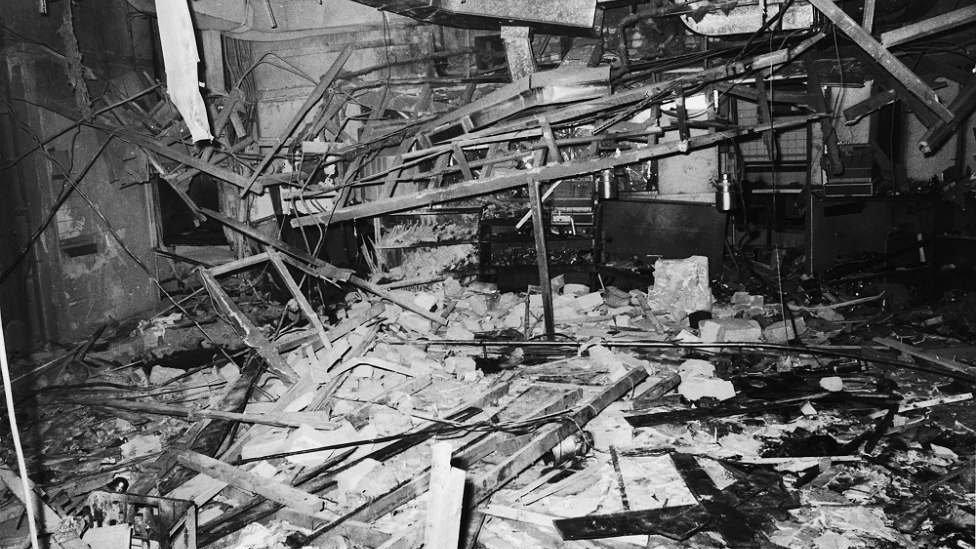
- Published21 March 2019
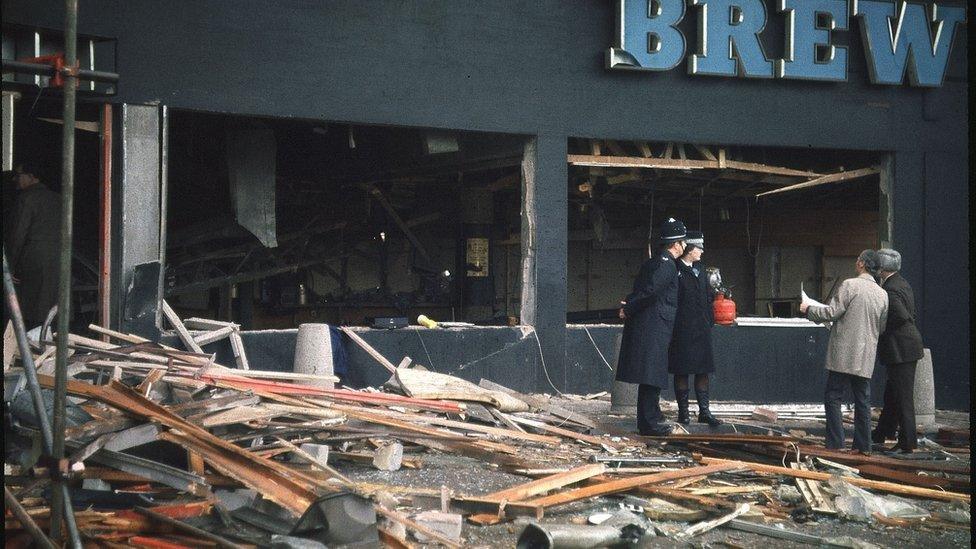
- Published20 March 2019

- Published19 March 2019

- Published18 March 2019

- Published13 March 2019

- Published8 March 2019

- Published5 April 2019
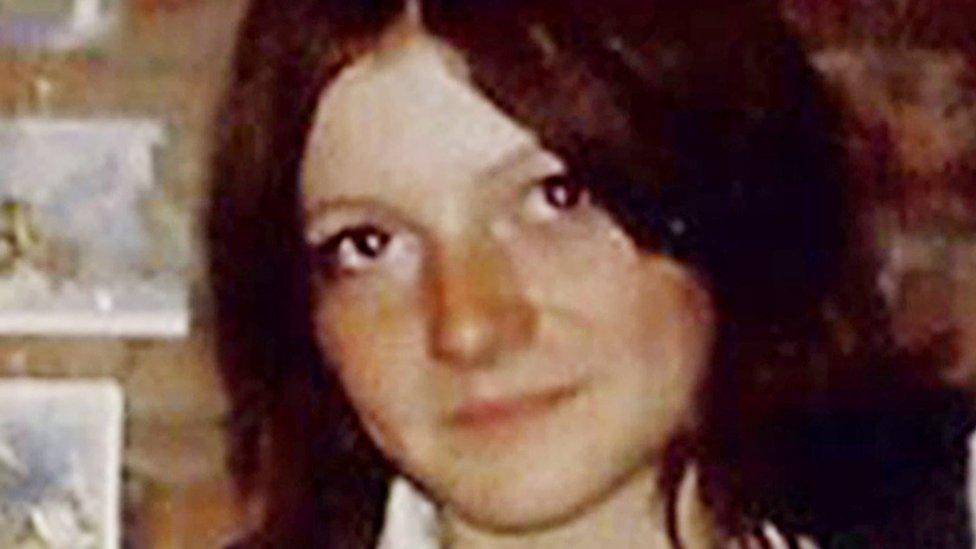
- Published1 March 2019
